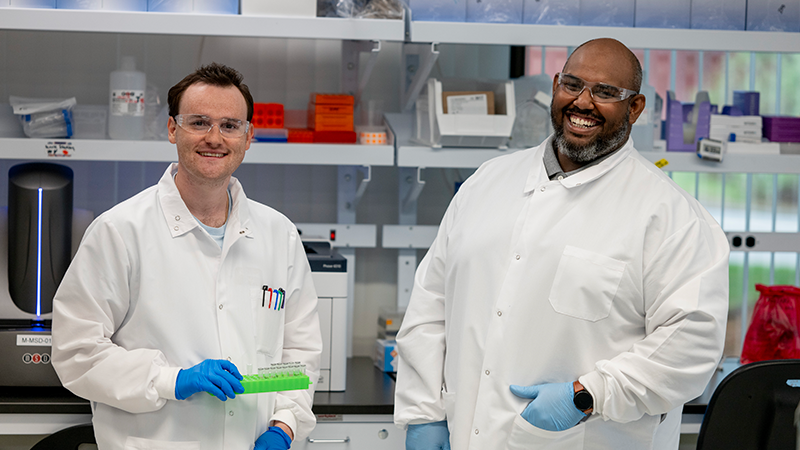First, a bit of Context
Effective drug discovery research support is a highly dynamic world with large degrees of complexity and scientific diversity, high transactional volumes, limited visibility, requiring flawless execution under extremely tight timelines, all the while requiring cost efficiencies commensurate with the stage of research supported. Over my 35+ year career working within and leading multiple contract research organizations (pharmaceutical & biotech discovery nonclinical and bioanalytical services), experience has both taught me and repeatedly reinforced my deeply held, innate belief that the company’s employees are hands down, without question, the GREATEST asset of the organization. Success requires the contributions of many talented, enthusiastic, creative, adaptable, and dedicated employees. As an organization providing services, delivered by people and teams and absent intellectual property, it is ultimately the hearts, minds, talents, resiliency and creativity of empowered employees that drives sustained client satisfaction and ultimately business success. I’ve long been fond of saying that as a CRO, we ultimately are in the “TRUST” business – our clients place with us some portion of their research that is critical both to their company and the development of new therapeutics.
…we ultimately are in the “TRUST” business – our clients place with us some portion of their research that is critical both to their company and the development of new therapeutics.
Defining Business Primacies
Defining the fundamental principles and priorities that guide and influence a company’s strategy, operations and decision making processes are paramount to success. While the fundamental principles and priorities are mostly common across multitudes of businesses, how businesses translate and communicate these can vary widely. In my experience, financial success is not best achieved by it being the leading business primacy, but rather the outcome of emphasizing other business primacies centered around exceptional client service and great data delivered consistently over time and creating and sustaining an employee centric company culture.
Begin by Hiring the Right Employees
Given the value and criticality we place on the employees for the organization, and knowing the organizational culture we seek to build and nurture, identifying, hiring and retaining employees that “fit” with us organizationally is essential. Perhaps putting it too simply, we seek to hire people with great attitudes that fit with “us”, whom we can teach and invest in scientifically and technically. You can teach skills and competency but you can’t teach attitude. We seek to add team members that are “We” people, free of ego, humble and confident as opposed to “I” people. Further, we seek employees who possess a positive attitude, are energetic, self-motivated and self-directed, self-aware, curious, team oriented and comfortable making decisions and taking smart risks.
Enable through Company Culture – The Foundation Underlying Sustained Success
Over time, innumerable books, research, analyses and reports have examined key attributes of sustainably successful businesses. Their importance and ensuing interest has given rise to an industry, armies of consultants and multitudes of theories and university business programs. Among the many factors, in our minds company culture combined with strategy are at the forefront of importance and focus as a management team, the former being most important.
Put simply, company culture is that “IT” or “Vibe” you can literally feel when first meeting a company and its employees. In the often quoted words of Peter Drucker, a management consultant and author, “Culture Eats Strategy for Breakfast”. No matter how well-crafted and refined a business’ strategy may be, it is unquestionably the culture of the organization that will determine its success or failure. Intrinsically linked, our company’s culture and employees influence one another in countless ways on a daily basis. Employees are the foundation upon which our company culture is built and sustained.
Supported by alignment to a set of well defined core values, and combined with the absolute importance within a CRO to win the minds and hearts of the employees, a well defined and highly functional company culture is in our opinion the single most important business attribute for sustained success. Great employees thrive upon being trusted, given freedoms and the abilities to make decisions and ultimately make a difference. We strive to emphasize ownership and minimize rules to empower employee ownership – people over process. Operationally, we strive to be organizationally flat as practical, minimizing the layers between employees, clients, vendors and other partners. By developing trust between the organization and its employees, we seek to push decision making downward organizationally. Ultimately, we seek for many decisions to be made by owners in what is the best interest of the business, not committees, consensus or majorities
While effective and recurring communication regarding the company’s strategy and desired culture are necessary and critical, employees are particularly attuned to how they feel and what they see in their individual work environments. It is the integrated impact of many, many little things that sum together to create company culture. Does management walk the walk or pay lip service? Are the employees’ interactions with one another, within and across functional areas and levels consistent with the culture we seek to develop, nurture and sustain? Do we recognize one another for contributions and success?
It’s All About the People
Hire great people: trust, empower and invest in them. Spend the time and energy necessary to create and sustain a great company culture aligned to your values and the business’ goals. Management’s number one job is to ensure the development and success of their direct reports and to be there for support when challenges inevitably arise. If you consistently delight your clients and your employees, business success will result. For a CRO, it’s all ultimately about the people!


